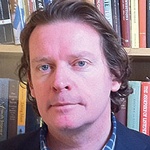Health Foundation
- Award winner: Sara Demain
- Institution: University of Southampton
- Value: £238,000
Self-management VOICED (valued outcomes of importance: consensus and disparity)
Leverhulme Trust
Major Research Fellowships
- Award winner: Emily Gowers
- Institution: University of Cambridge
- Value: £100,840
Maecenas: transformations of an Augustan patron
- Award winner: Heather Widdows
- Institution: University of Birmingham
- Value: £94,224
Perfect me!
- Award winner: Alvin Jackson
- Institution: University of Edinburgh
- Value: £141,563
The Union: a new political history
- Award winner: Victor Tadros
- Institution: University of Warwick
- Value: £152,4
To do, to die, to reason why: the ethical lives of combatants
Bell Foundation
- Award winner: Urszula Clark
- Institution: Aston University
- Value: £3,000
An evaluation of a language-based CPD programme in relation to developing teachers’ metalinguistic awareness and pupil achievement at Key Stage 3
Dunhill Medical Trust
- Award winner: Frank Eperjesi
- Institution: Aston University
- Value: £299,154
Detecting the pre-symptomatic stage of neovascular age-related macular degeneration
Royal Society
Wolfson Research Merit Awards
Awards are worth £10,000-£30,000 a year, which is a salary enhancement
- Award winner: Bashir M. Al-Hashimi
- Institution: University of Southampton
Energy-efficient and reliable many-core computing systems
- Award winner: Miguel Araújo
- Institution: Imperial College London
Improving forecasts of biodiversity change
- Award winner: Mohan Balasubramanian
- Institution: University of Warwick
Cytokinetic actomyosin ring structure, assembly and function
- Award winner: Katharine Cashman
- Institution: University of Bristol
From magma to ash
In detail

European Research Council
Award winner: Edward Simpson
Institution: Soas, University of London
Value: £1.9 million
Roads and the politics of thought: Ethnographic approaches to infrastructure development in South Asia
This project will provide the first ethnographic account of the culture of road builders, their knowledge practices, interrelations and motivations. The research will be rooted in case studies of specific road projects in Pakistan, India, the Maldives and Sri Lanka. These sites have been selected to bring to the fore how nation building, neoliberalism, ambition, environmental vulnerability and modernity feature in contemporary road building. The team will examine how road building is organised on site, in offices and within a broader array of institutions and state bodies in national and international contexts in order to understand the global cultures of road-building practice. The project’s aim is to survey expert opinion and uncover the ideas driving current road-building practices in South Asia. As roads are being built at unprecedented rates in some parts of the world, the researchers will ask: why, to what end and what ideas lie in the foundations of this new infrastructure?
Register to continue
Why register?
- Registration is free and only takes a moment
- Once registered, you can read 3 articles a month
- Sign up for our newsletter
Subscribe
Or subscribe for unlimited access to:
- Unlimited access to news, views, insights & reviews
- Digital editions
- Digital access to THE’s university and college rankings analysis
Already registered or a current subscriber?

